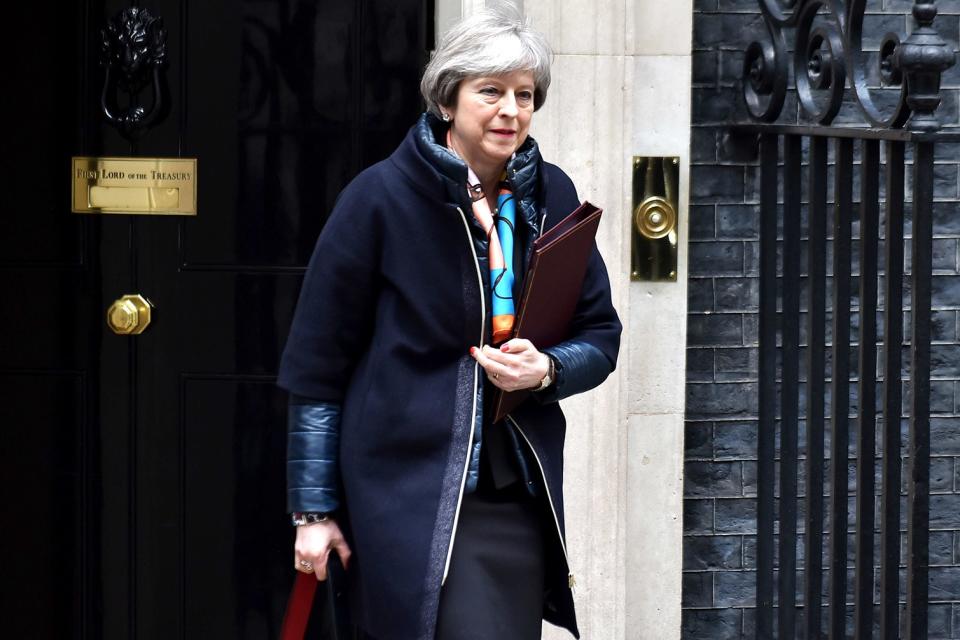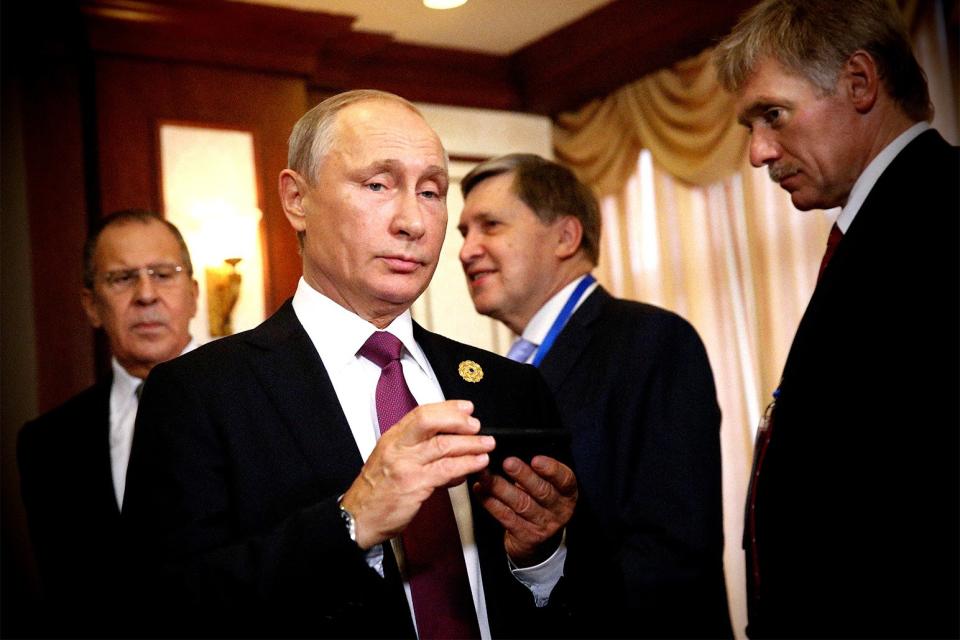Russia Mocks Theresa May as Britain Feuds Over Deadly Poisoning
In the most dramatic foreign-policy clash between Russia and Britain in decades, British Prime Minister Theresa May announced the expulsion of 23 Russian diplomats and the termination of all high-level diplomatic contact following the poisoning of former spy Sergei Skripal and his daughter, Yulia, in Salisbury last week. The attempted murder with a Soviet-era nerve agent quickly prompted May to issue a 24-hour ultimatum to Moscow: provide a satisfactory explanation for the incident or face the consequences. On Wednesday, after the clock ran out, May outlined the consequences in a speech before the House of Commons. “[Russia] have treated the use of a military-grade nerve agent in Europe with sarcasm, contempt, and defiance,” said May. “Their response has demonstrated complete disdain for the gravity of these events. They have provided no credible explanation.” In addition to expelling Russian diplomats, there will be no ministerial or royal presence at the upcoming World Cup. Britain has also reserved the right to freeze Russian assets if there is evidence they constitute a security threat, and to enact new “targeted” powers to detain people suspected of “hostile state activity at borders.”
May’s reprisal, while generally well received in Westminster, was derided by her opponent, Jeremy Corbyn, who responded with a speech questioning the race to finger Moscow. As he spoke, Foreign Secretary Boris Johnson’s eyes practically rolled back in apoplexy. The bipartisan outrage peaked when Corbyn spokesman Seumas Milne confirmed that the Labour Party leader’s stance was, indeed, exactly as his critics claimed: he refused to blame Russia until there was tangible proof of their culpability. Past incidents of faulty intelligence with regards to weapons of mass destruction were cited. So, too, was the possibility that Russia may have lost control of their nerve agent. “If true, Seumas Milne’s comments to the lobby are an utter disgrace,” one Labour M.P. spluttered to the Times. “Putin’s craven, constant and shameful apologist might just as well stand aside and let the Kremlin write the speeches and brief the media directly.” Political commentator Steve Richards adopted a more sympathetic stance. “UK foreign policy framed in the context of ‘national consensus’ and yet in an atmosphere of hysteria tends to go badly wrong. A Labour leader is always under huge pressure to join the consensus until the policy goes wrong at which point few admit to supporting it in first place,” he tweeted.
As British M.P.s skirmished over Labour’s position on the poisoning—is it unashamedly pro-Putin? Is it worryingly Trump-like? Is it an antidote to a febrile atmosphere that emboldens the government to suggest new “targeted powers”?—Corbyn’s rebuttal set off another, more controversial debate. London is a well-known center for Russian money laundering and criminality. As the Financial Times reported in July 2016, a Home Affairs Select Committee estimated that more than £100 billion is laundered through the U.K. every year—an amount that outstrips the annual G.D.P. of 130 countries. At the same time, the city has offered political asylum to many of Vladimir Putin’s enemies, who have, in turn, attracted an army of Russian spies. (According to British intelligence officials, there are currently more Russian agents in London than at the height of the Cold War.) This volatile combination raises two questions: what is the government going to do to tackle Russian criminality in the U.K.? And how can it safeguard its Russian wards? To the outrage of many, it took the government 10 years to conclude that Putin “probably” approved the assassination of Alexander Litvinenko, who died after drinking tea laced with radioactive polonium. Following the Skripals’ poisoning, Litvinenko’s widow told Sky News that May, then home secretary, had failed to act over her husband’s murder.

A robust response to Moscow means more than dramatically expelling 23 diplomats while still allowing tainted money to flow through London’s financial systems. May is aware of this: her government can easily outline lists of sanctions and garner international outpourings of support. The hard part is crafting the foundations of a cohesive international strategy, too. As my colleague Peter Savodnik writes for the Hive, the significance of the poisoning spans beyond Salisbury. A similar attack is inevitable in the U.S., or elsewhere, as Russia pushes the boundaries in its ever-widening “special war” with the West.
The May-Corbyn fight exposes the difficulties of forging a unified position on Putin. So, too, did Donald Trump’s days of equivocation—shadowed, as ever, by Robert Mueller’s ongoing investigation into Russian meddling in the presidential election. Russia doesn’t just represent an external threat, but one that has become entangled in the culture wars dividing right from left, nationalists and globalists, and sundry populist movements across the world. Russian intelligence, always one step ahead of the West, has exploited those tensions and anxieties, especially on social media, to politicize issues that might otherwise have been sacrosanct. And so Corbyn and Trump hedge and hesitate.
It remains to be seen whether Britain is aided by its allies in the European Union, with which it is in the process of a painful divorce, or by the United States, which has retreated into its own isolationism. “The Russian authorities don’t feel themselves isolated at all,” Thomas Gomart, director of the French Institute of International Relations, in Paris, told The New York Times. “They feel there is disarray in the West because of the situation in Washington, because of Brexit, because of the Italian elections, and the difficulty of forming a government in Berlin.”
As Britain’s leaders stand divided, the most consistent response to the attack has come from Russian officials, who have adopted a familiar tone of wry, outraged incredulity. The Russian Embassy issued a response deeming the mass diplomatic expulsion “totally unacceptable, unjustified, and shortsighted.” Russia’s ambassador of the Organization for the Prohibition of Chemical Weapons accused the U.K. of “pumping hysteria” over the poisoning. The Russian Foreign Ministry, meanwhile, which summoned the U.K.’s ambassador to Moscow, struck a more flippant angle. Mocking May for her conclusion that it’s “highly likely” that Russia was behind the attack, it tweeted a message expressing “sincere thanks to Mrs May for #HighlyLikelyRussia” (a hashtag that refers to the West blaming everything on Russia). The tweet was accompanied by a video suggesting the country was to blame for the recent snowfall across Britain.


